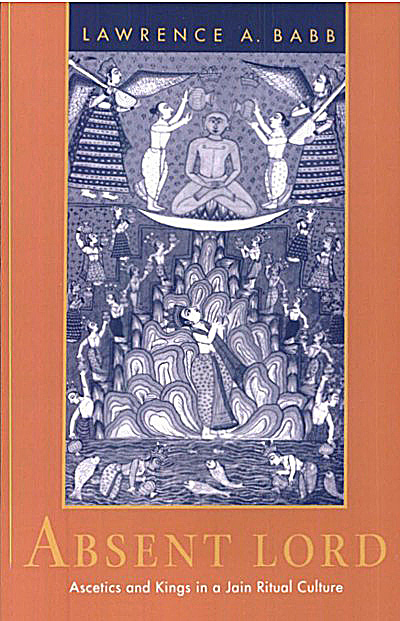There are certain ostensible exceptions to the generalization that Jains do not take prasad, but they all turn out to be special - and instructive - cases. For example, favors (often cash or sweets) are handed out to departing guests at the conclusion of various Jain ceremonies. These gifts, however, are not prasad. Known as prabhavna, they are distributed as an expression of the good wishes of the ceremony's sponsor. What is critical is that they are not redistributed offerings.[1]
Certain Jain pilgrimage centers are famed for the distribution of prasad. One example is the celebrated temple complex at Mahudi, just north of Ahmedabad in Gujarat. Sweets are indeed distributed to worshipers here, and they are in fact prasad. They are not, however, a Tirthankar's prasad, for they have been offered not to the Tirthankar but to a deity named Ghanta Karn Mahavir, who is much celebrated for his miraculous interventions (camatkars) in his worshipers' worldly affairs.[2] In an interesting twist, his prasad may not be consumed outside the Mahudi temple's premises. The prohibition is said to have been instituted by the god himself at the time of the temple's founding, and tales abound concerning the misfortunes of those who have broken the rule.
In Rajasthan a similar pattern obtains at the pilgrimage center at Nakora. As at Mahudi, prasad is distributed at this temple complex, but it is not the Tirthankar's prasad; it is that of Nakora Bhairav. A pilgrim purchases sweets outside the temple compound. He or she then takes a portion into the temple building, and the rule is that anything going into the temple building cannot be eaten and cannot be taken outside. Presumably it goes to the temple staff. The portion remaining outside the temple building becomes Nakora Bhairav's prasad, and it must be consumed within the temple compound and cannot be taken outside. One friend told me of how, when he was on a family visit, one of his grandchildren accidentally put some prasad in his pocket. While driving away from Nakora they had engine trouble and an engine fire. They finally discovered the hidden prasad, which of course was the reason for the trouble. The boy ate the prasad, they prayed for forgiveness, and were able to continue their journey.
The reason prasad can be taken from the altars of these deities is that they, unlike the Tirthankars, are unliberated. This means that they are able, as the Tirthankars are not, to engage in transactions with worshipers. Therefore, offerings made to them can indeed be transformed by them and then returned as blessings to devotees. This is true of all Jain deities. Why the prasad in these cases cannot be consumed outside these temple complexes is unclear. It may be that the relationship between deity and worshiper (as opposed to Tirthankar and worshiper) is being quarantined. If worldly give-and-take is normally kept outside the Tirthankars' temples, at Mahudi and Nakora it is subordinated to higher values by keeping it within. It is also possible that the restriction has been instituted because it has the effect of maintaining high attendance at the shrines by ensuring that the benefits of a visit are not portable. But whatever the case, the prasad in question is not the Tirthankar's.
Another apparent exception to the no-prasad rule, this in the Khartar Gacch tradition, involves the worship of the deceased ascetics known as Dadagurus. Here too prasad is recovered from worship and consumed by devotees. But here, too, this is possible because the Dadagurus are not, as are the Tirthankars, in a liberated condition. This is a matter to be discussed in detail in the next chapter.
At one Jaipur temple there is an attached hall that is frequently used for wedding dinners. At such a dinner I once saw platefuls of food taken into the temple and deposited before the main image (but only in the main hall, not in the inner shrine) and also in front of images of Bhairav and Ghanta Karn Mahavir (two deities). They were not, however, taken back out, but were left (I was told) for the pujari s. That is, the food did not become a recovered offering.
 Prof. Dr. Lawrence A. Babb
Prof. Dr. Lawrence A. Babb
